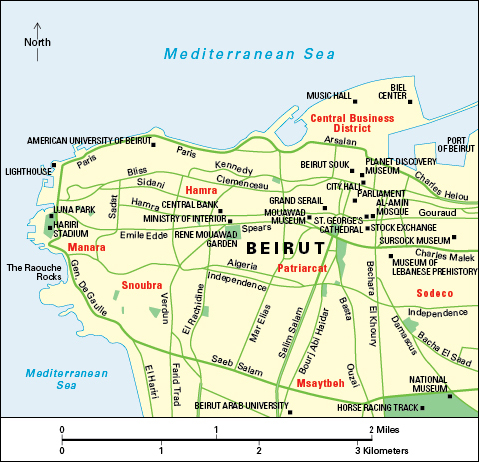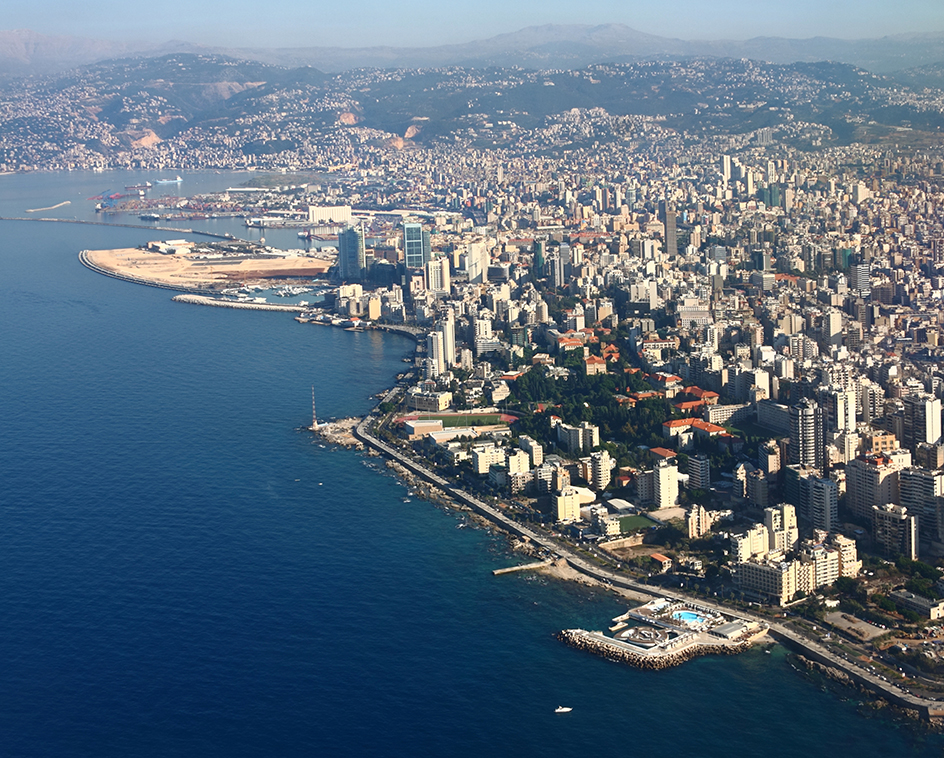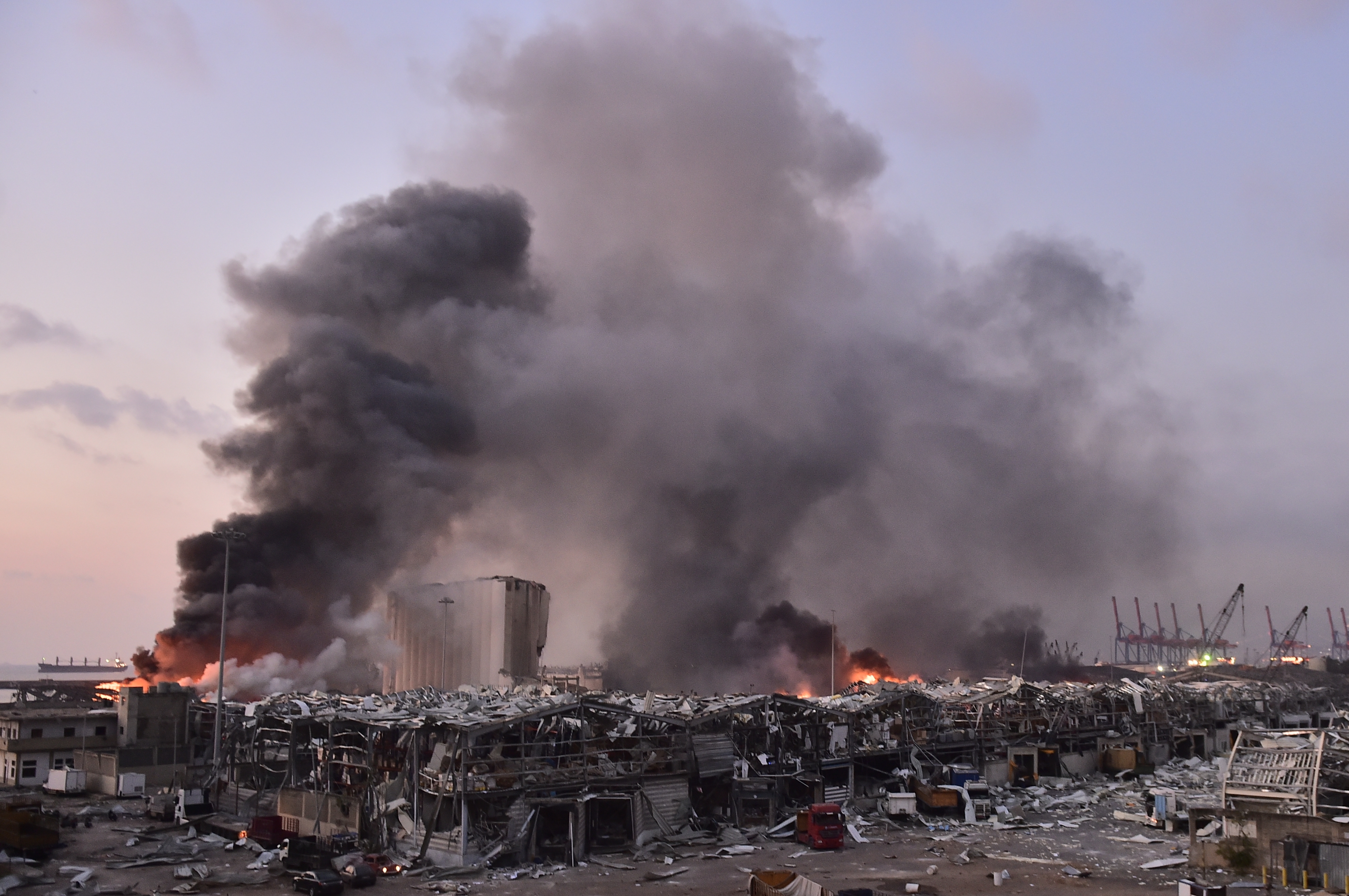Beirut << bay ROOT >> is Lebanon’s capital and largest city. It is also the country’s chief commercial and cultural center. Approximately 21/2 million people, or about two-fifths of Lebanon’s population, live in the Beirut area. The city lies on the eastern shore of the Mediterranean Sea.

The main business district of Beirut, and most of the city’s hotels and high-rise buildings, are on or near the seashore. One of the city’s most modern sections, called Hamra, is known for its cafes, shops, motion-picture theaters, and nightclubs. Residential areas are divided into districts based largely on religion, social class, and ethnic group. Many middle- and upper-class Christians live in certain districts, and middle- and lower-class Muslims live in others. Palestinian refugees from the Arab-Israeli wars live in wretched, crowded camps in Beirut. The city’s universities include the American University of Beirut, Beirut Arab University, and St. Joseph University.
Beirut’s chief economic activities are commerce and banking. A major international airport lies near the city.
The Phoenicians founded Beirut about 3000 B.C. A series of foreign rulers controlled the city throughout most of its history. They included the Assyrians, Greeks, Romans, Ottomans, and French.

During the late 1800’s, Beirut became a leading center of Arab learning and culture. In the 1900’s, it grew into a financial and commercial center for the Middle East, and one of the most modern cities in that region. But a civil war between Lebanese Christians and Muslims in 1975 and 1976 destroyed Beirut’s business district and crippled the city’s economy. Some damage was repaired by the early 1980’s, but continued fighting caused further damage. By 1991, peace had been restored.
In 2015, a pair of bombs killed 43 people in a suburb of Beirut in one of the deadliest terrorist attacks in Lebanon in years. The militant Islamic group the Islamic State (also known as ISIS or ISIL) claimed responsibility for the blasts. The bombs went off in a neighborhood frequented by Hezbollah, an Islamic group that has been fighting against the Islamic State in neighboring Syria.

